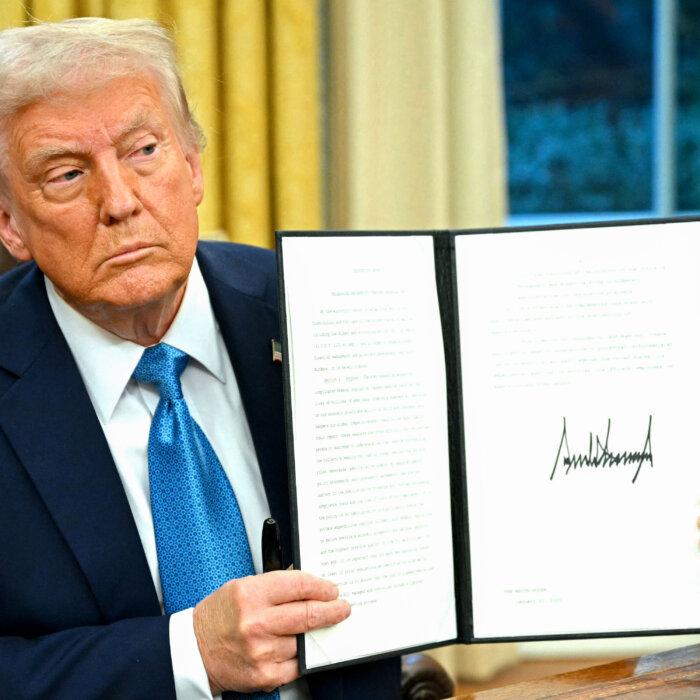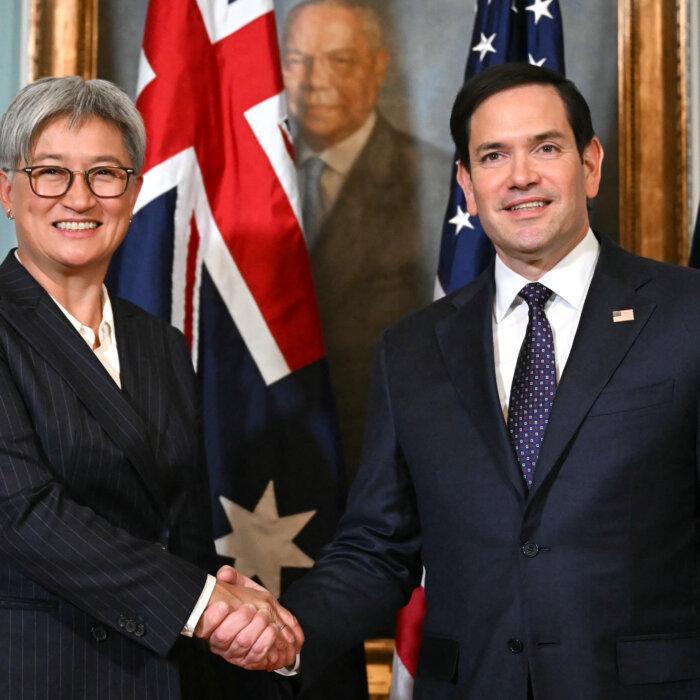Several European leaders attending an informal meeting about defense in Brussels on Feb. 3 have responded to President Donald Trump’s threat to impose tariffs by warning of “tough” and “united” action.
French President Emmanuel Macron said, “As much as COVID and the Russian aggression in Ukraine were a wake-up call for Europe, what is happening ... with the choices and the statements of the new administration of President Donald Trump pushes the EU to be more united and more active to respond to issues of collective security.”
Stock prices fell across Europe on the morning of Feb. 3 amid fears of a looming trade war.
The pan-European STOXX 600 index was down 1.4 percent, and stocks in the big European auto brands—Porsche AG, BMW, Volkswagen, Mercedes-Benz, and Stellantis—fell by between 3.7 percent and 6.5 percent.
“Poland will for sure be a country that encourages common sense and caution. But we also have to say clearly that any plans to introduce customs and trade wars are a complete mistake,” he told journalists before leaving for Brussels.
“I hope that such a firm, clear, friendly, but tough European position will get across to the American administration.
“We must be unquestionably united. It is worth doing everything possible to ensure that in the face of a Russian threat or Chinese expansion, we do not fight between allies.”
Trump said the 27-member European bloc was next in line to face tariffs.
“It will definitely happen with the European Union. I can tell you that because they’ve really taken advantage of us,” he told reporters on Feb. 2.
“They don’t take our cars, they don’t take our farm products. They take almost nothing and we take everything from them.”
Kallas: China ‘Laughing’
Kaja Kallas, the EU foreign policy chief, said that if a trade war were to break out between the United States and the EU, “then the one laughing on the side is China.”“We are very interlinked. We need America, and America needs us as well,” she said.
German Chancellor Olaf Scholz, who faces being forced out of office after an election on Feb. 23, struck a more diplomatic tone.
“It’s clear that as a strong economic area we can shape our own future and react to tariff policies. ... But the perspective and the goal should be that things result in cooperation,” he said.
Friedrich Merz, leader of German opposition party Christian Democrats, said on Feb. 2: “Trump will now also realize that the tariffs he is imposing will not have to be paid by those who import into America. Instead, they will have to be paid for by consumers in America.”
The governor of France’s central bank, François Villeroy de Galhau, said Trump’s tariffs were “very brutal” and would hit the auto industry hard.
He told the France Info radio network that Trump’s tariffs “will increase economic uncertainty.”
“Everybody loses in this kind of protectionist trade war,” he said.
Spain’s economy minister, Carlos Cuerpo, told the RNE radio station that the EU should not be “naive” and seek to protect its companies but rather should ensure they are in a position to compete, in equal conditions, with their international competitors.
White House press secretary Karoline Leavitt said on Jan. 31 that the president had not decided on a timeline for implementing tariffs on the EU.
EU countries are seeking to reduce their use of fossil fuels as they pursue net-zero agendas.







